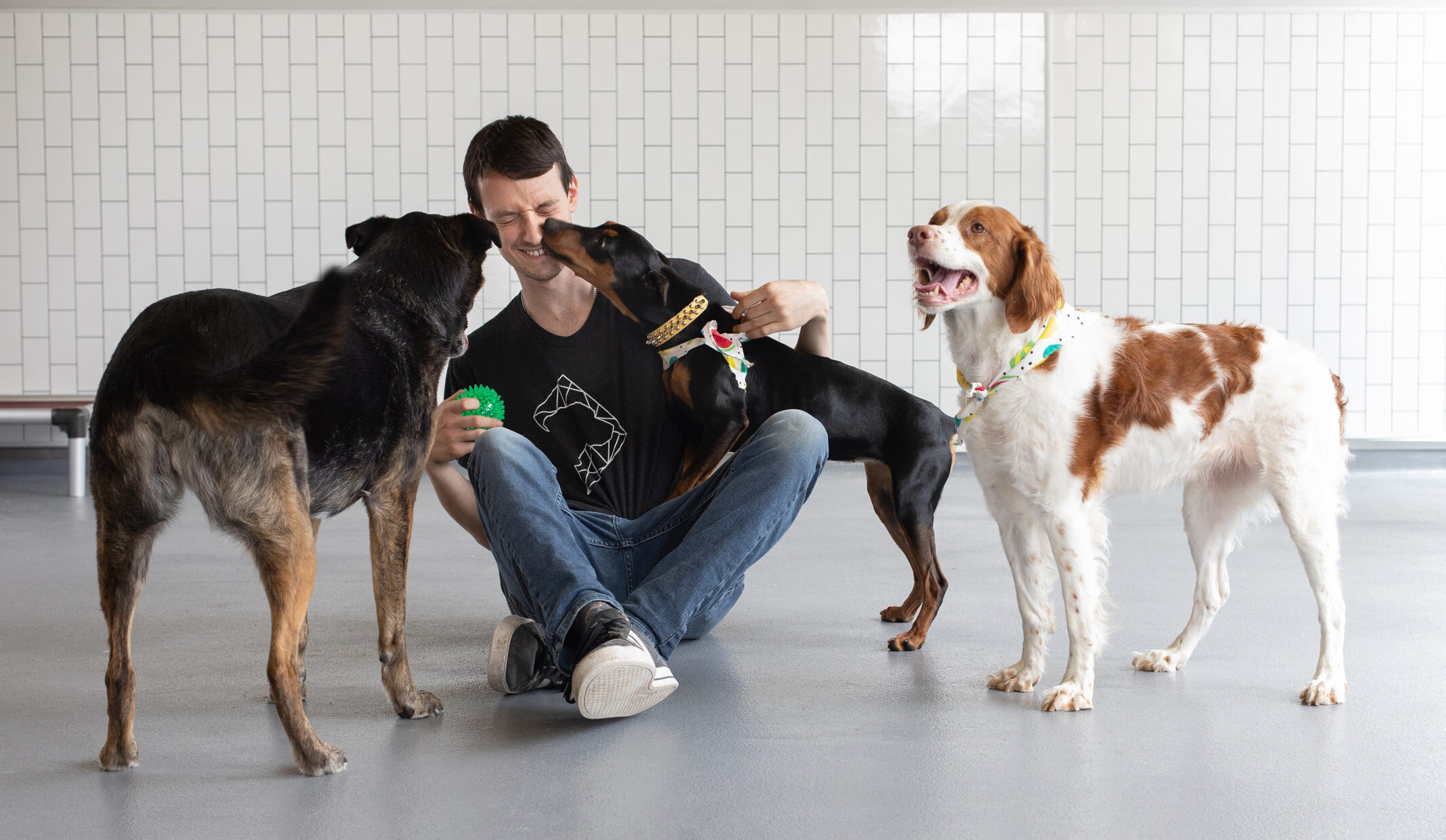As pet ownership continues to rise, with an estimated 67% of U.S. households owning a pet according to the 2019-2020 National Pet Owners Survey conducted by the American Pet Products Association (APPA), many dog owners find themselves asking, “Does dog daycare help with socialization?” The answer is increasingly significant in today’s fast-paced world where pet care services, such as doggy daycare, are not just a convenience but a necessity for many. These facilities offer more than just a place for dogs to stay; they provide an excellent atmosphere for dogs to socialize, play, and learn. In this article, we delve into the multifaceted benefits of doggy daycare for socialization, the importance of early socialization for puppies, strategies for socializing adult dogs, and how to decide if doggy daycare is the right fit for your canine companion. From understanding different dog personalities to choosing the right daycare setting, we provide comprehensive insights for making an informed decision about this valuable service.
Key Factors to Consider Before Enrolling Your Dog
Before leaping into doggy daycare, consider your dog’s personality and past experiences. Puppies may adapt more quickly, but older, less socialized dogs might need a different approach. It’s crucial to assess whether your dog enjoys the company of other dogs and how they react in new environments.
Preparing Puppies for Doggy Daycare
For puppies, early socialization is key. Introducing them to a variety of dogs and environments at a young age can set the stage for a well-adjusted adult dog. But it’s important to start small. A gradual introduction with close supervision ensures that your puppy learns how to interact appropriately.
The Importance of Early Socialization for Puppies
Socialization in the early stages of a puppy’s life is about more than just play. It’s a critical period for learning social cues and behaviors from other dogs. This period lays the groundwork for their future interactions and can significantly influence their temperament and behavior.
Steps to Prepare Your Puppy for Daycare
Begin with vet checkups and vaccinations, then slowly introduce your puppy to other dogs in controlled settings. This might include puppy playgroups or one-on-one meetings with calm, friendly adult dogs.
Socializing Adult Dogs: Challenges and Solutions
Adult dogs who missed early socialization opportunities might find adapting to new social environments more challenging. They may require more time and patience, and in some cases, the assistance of professional trainers or socialization classes.
Professional Training and Socialization Classes
For dogs needing extra help, professional training and structured socialization classes can be invaluable. These classes offer a safe environment where dogs can learn at their own pace under the guidance of experts.
Assessing Your Dog’s Suitability for Daycare
Not every dog is a daycare dog. Assessing your dog’s sociability, temperament, and past experiences will help determine if doggy daycare is a suitable choice. Remember, it’s okay if your dog prefers more solitary activities or smaller social circles.
Understanding Different Dog Personalities and Their Daycare Needs
Dogs, much like humans, have diverse personalities and social needs. Some may be outgoing and enjoy the company of many dogs, while others might be more reserved or selective.
Categories of Dog Sociability
- Dog Social: These dogs love interacting with almost every dog they meet.
- Dog Tolerant: Comfortable with most dogs but may prefer certain play styles or companions.
- Dog Selective: Choosy about their dog friends and may have specific preferences.
- Dog Aggressive: Limited social skills with other dogs and might need skilled support for interactions.
The Comprehensive Benefits of Doggy Daycare
Doggy daycare provides more than just a play space. It’s a venue for exercise, mental stimulation, and consistent socialization. This environment can help reduce anxiety and prevent destructive behaviors in dogs by keeping them engaged and active.
Choosing the Right Doggy Daycare Facility
When selecting a daycare, consider cleanliness, staff qualifications, and the overall environment. A good daycare should offer plenty of space, regular breaks, and a routine that includes both playtime and rest.
Conclusion: Making Informed Decisions about Doggy Daycare
The journey through understanding and utilizing doggy daycare for the socialization of our canine companions highlights the deep bond and commitment we share with our pets. As we’ve explored, doggy daycare offers a plethora of benefits, from enhancing social skills in puppies to providing much-needed interaction for adult dogs. It’s a testament to the fact that our dogs are more than just pets; they are integral members of our families. This sentiment is echoed in a 2020 survey by the American Kennel Club, which found that 73% of dog owners reported their willingness to make significant lifestyle changes for their pets, underlining the profound love and dedication we have for our furry friends. Doggy daycare, therefore, isn’t just a service; it’s an extension of the care and devotion we have for our dogs, ensuring they receive the best social and physical stimulation even when we’re not around. Whether your dog is a social butterfly or a selective socializer, doggy daycare can play a pivotal role in their overall well-being, reflecting our ongoing commitment to their happiness and health.


